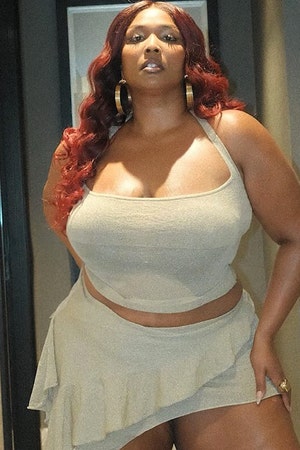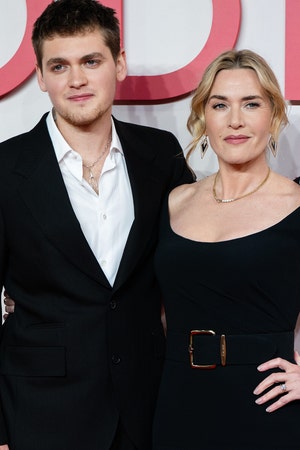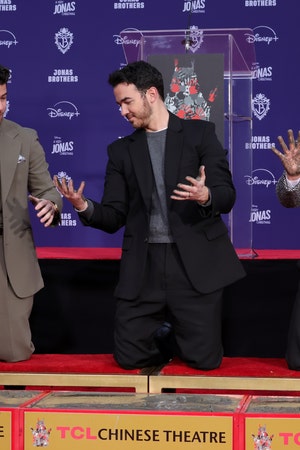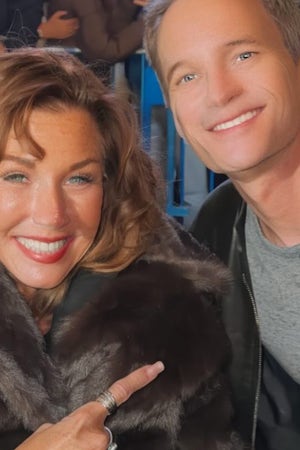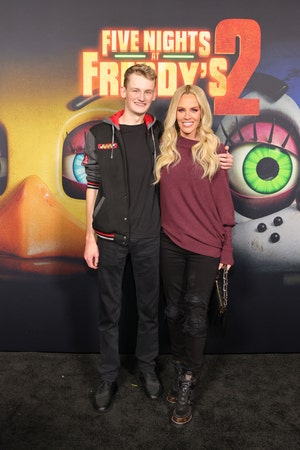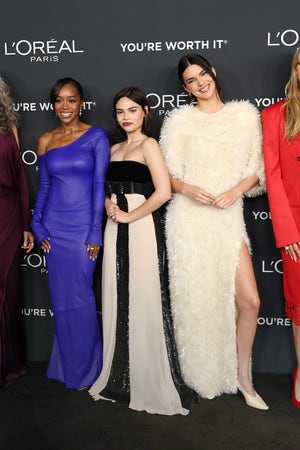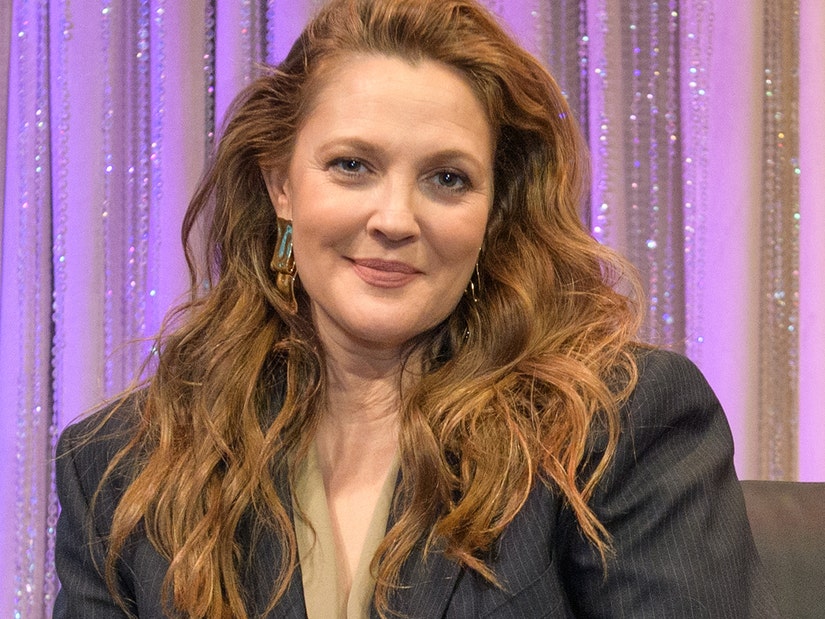 Getty
Getty
The talk shows host opens up about having "too much access and excess" as a child leading to her "exhibitionist" choices, not knowing everything would resurface later thanks to the internet, and how to protect children from social media.
Drew Barrymore certainly knows a lot about how challenging it can be growing up. She did it in the spotlight with all of her choices -- and inevitable regrettable errors -- blasted on tabloid magazine covers in the supermarket. But that was still better than the internet.
The daytime talk show host opened up in a lengthy post about how she looks back at her childhood of "too much access and excess" through new eyes now as a mother of daughters in the age of social media and a smartphone in every hand.
Access and Excess
She reflected on how there were almost no limits to her young life from the age of seven years old when she took the world by storm in E.T.: The Extra-Terrestrial. Everyone was watching her "exhibitionist" teens and early 20s, which included appearing in Playboy.
"When I did a chaste artistic moment in Playboy in my early 20s, I thought it would be a magazine that was unlikely to resurface because it was paper. I never knew there would be an internet," she wrote. "I didn’t know so many things."
At the same time, Barrymore noted that even though she was "a big exhibitionist," she "thought of it as art, and still do not judge it."
But as to how she came to make those choices, the actress believes it was because she "was around plenty of hedonistic scenarios at parties and even in my own home where the viewing was of highly sensitive natures and caused me tremendous shame."
"We, as kids, are not meant to see these images," she continued.
That's what brought her to some of the self-reflection she's been experiencing about her own childhood and childhood today. Looking back on her own experience, Barrymore has concluded, "I wished many times when I was a kid that someone would tell me no."
"I had to much access and too much excess, and eventually, 'no' actually became a challenge," the 50 First Dates star continued. "I would not accept it because I had so much autonomy at a young age that I simply couldn't accept any authority of any kind, and I ended up in an institution for two years."
"It was a blessing," she continued. "A hard-core style of a reset. It made me appreciate everything."
Modern Access
It is through the filter of her own experience that she had personally that she approaches parenting her 10- and 12-year-old daughters. And what she has come to realize is that the "access and excess" that she experienced in the '80s and '90s as a child of extreme privilege is now accessible to all children, in different ways.
Barrymore believes that being exposed to a lot of hedonism and adult material and "content" at a young age led to a lot of the behavior she displayed, that some would consider acting out. That type of material is now readily available on every connected smartphone 24/7.
"I cannot believe I am in a world that I know correlates to my own personal pitfalls and many of my peers who got into too much, too son," she wrote. "Kids are not supposed to be exposed to this much. Kids are supposed to be protected. Kids are supposed to hear NO."
As such, she said she's wanted to "create a coalition in the model of MADD (Mothers Against Drunk Driving)," only for technology because, based on her own limited research, it appears "there is nowhere to turn that has guardrails against tech."
The Scream star believes the opportunity might lie somewhere between a "dump phone" and the modern smartphone. Barrymore would like to see parents and schools working together to develop a device "that has so many of the amazing aspects of artistic and inspiring innovation without the pitfalls of social media."
Talking about the potential for toxicity in group texts, the unlimited access of smartphones, she marvels that we are "allowing kids to just have this much access? For brains that are not fully developed?"
Acknowledging that there may be other solutions and cultural approaches she just isn't aware of, Barrymore summed up her wish by just asking if anyone "could please make a tangible solution I could give my kids to protect them the way I wanted to be protected. I just didn't understand it at the time. How could I? I was a kid."
She said with virtually "no systems in place for social media" and "no regulations" and "no age terms," it must be up to the regular people to figure out a solution.
Too Much Influence
As her lengthy post continued, the daytime star detailed how she fell to the smartphone "pressure" from her daughter, and finally allowed her to get one -- because "all her friends had one" -- when she turned 11. But she stayed involved, and learned something heartbreaking.
Barrymore said that after three moths, she gathered the data of her daughter's texts and behavior and was shocked. "Life depended on the phone. Happiness was embedded in it. Life source came from this mini digital box," she marveled. "Moods were dependent on this device."
She explained to her daughter that she understood "her desires to be part of it all," knowing that social media "can seem like the ultimate party, and I was taking her away from that." But in looking at how it was impacting her after just three months, Barrymore realized, "it was not time yet."
Barrymore hasn't just been denying her kids phones and that's that, though, She talked about connecting with Apple and even the iPhone designer to explore "a device without all the trimmings that are proving too much for certain ages to emotionally deal with."
In the meantime, she wanted to encourage parents to not feel they have to give into the pressure, to be okay with being the villain in their story for a little while. "We can live with our children's discomfort in having to wait," she wrote.
"I am going to become the parent that I needed. The adult I needed," she emphasized.



